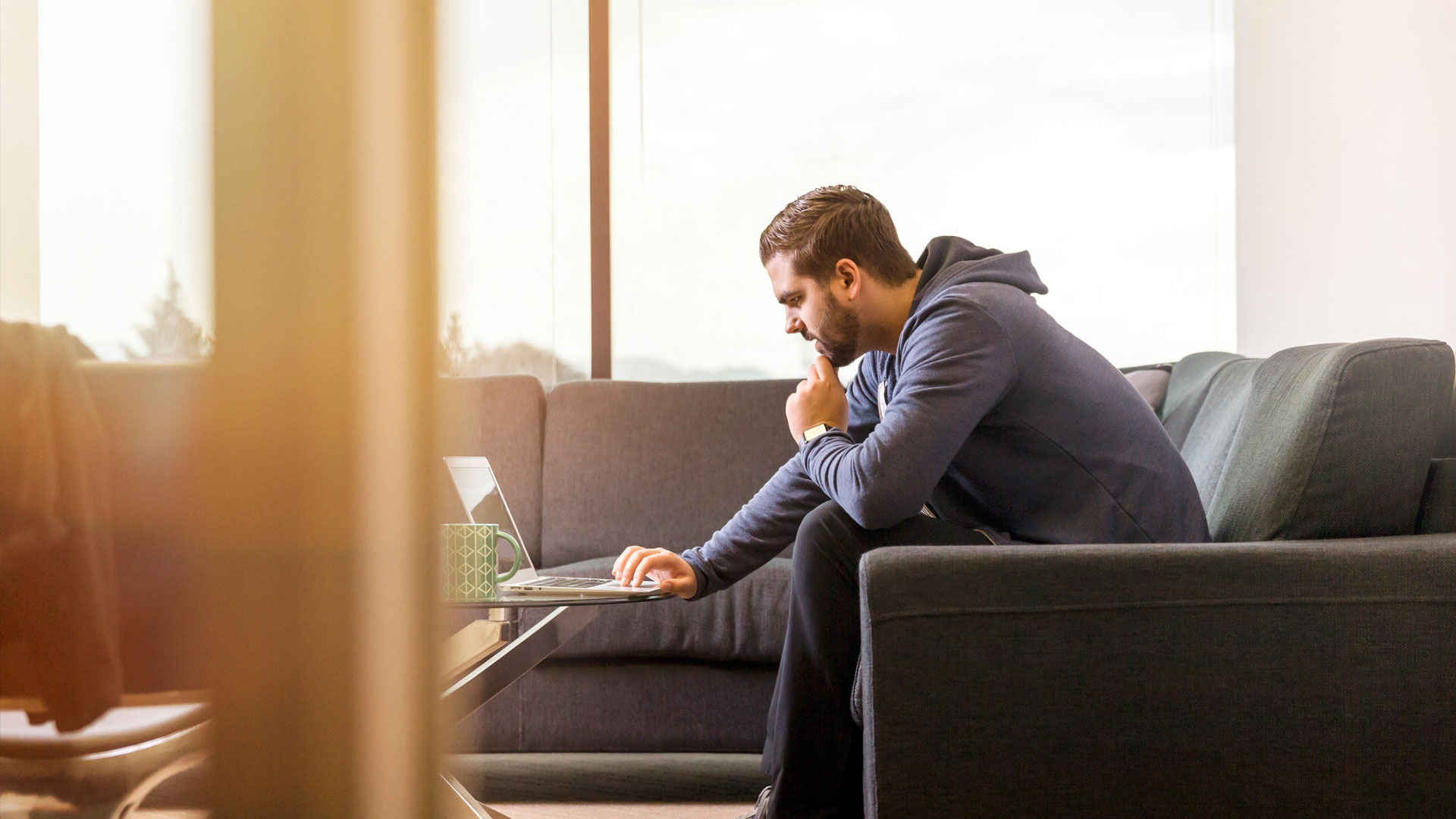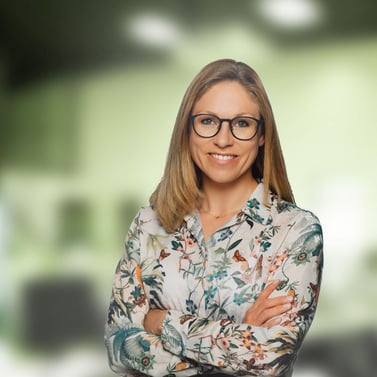How do employees stay mentally and physically healthy while working in home office? The All for One Group is also facing this challenge. In an interview with my colleague Nadine Held, Expert People & Culture Development, Christiane Siemann talked about measures that are also suitable for everyday business life. Christiane Siemann works as a journalist for human resources. I don't want to deprive you of the insightful conversation between the two.
Christiane Siemann: Ms Held, when and how did you realise that it made sense to support colleagues with workplace health promotion measures?
Nadine: It became really clear in autumn last year. The end of the home office situation was not in sight, and the long lockdown light was starting to get to our colleagues. The majority of our employees are normally in IT consulting with clients, have many meetings in a working day and communicate in person - and not only digitally. But now they were mostly working from their home offices. We received feedback about too little movement in the daily routine, increasing loneliness and unhealthy eating habits.
Christiane Siemann: How did you react to that?
Nadine: We tackled several areas at the same time and set up different programmes to close the gaps in physical, mental and social needs. For example, we developed a concept together with the health insucrance Techniker to compensate for the lack of exercise. Our idea: we train multipliers from the ranks of our colleagues to help make the home office breaks of all employees healthy.
Christiane Siemann: How do you train the multipliers?
Nadine: These people are made "fit" in the truest sense of the word: our Stay-Healthy-Guides encourage active breaks and accompany them. Since then, employees have been exercising together for half an hour during their lunch break. This strengthens the sense of community, counteracts loneliness and brings physical activity into the day. The active breaks, in which relaxation or meditation is also practised, are recorded so that the livestreams are also available at any other time.
Christiane Siemann: What measures does the All for One Group specifically use to counter mental exhaustion?
Nadine: During the dark season from December to March, we brought in an external mental health service provider who offered training phases and knowledge transfer on the topic of increasing mental health. Between 250 and 350 colleagues took part in the live workshops. A session under the motto "We are awesome - how to start the new year mentally healthy" was also very popular. Likewise, a webinar on the topic of "Stress is out - just save the world for a moment" was found to be very helpful. A psychotherapist combined her knowledge of the human psyche with the trends in the New Work world and made psychology very tangible and suitable for everyday life. Colleagues could ask questions via chat and access programmes and tools online to increase mental well-being.
Christiane Siemann: Do virtual formats help those who are experiencing a very severe psychological stress phase?
Nadine: We have considered this question and have therefore additionally opened up the possibility for employees to get support from experienced psychological and psychotherapeutic experts. The video sessions take place in private and last 45 minutes each. Whether preventive or acute - the colleagues themselves decide which topic they would like to work on. This form of help is 100 per cent anonymous. The employees accepted the coaching sessions with our mental health provider very well.
Christiane Siemann: What stress factors do you observe particularly frequently as a result of the home office situation?
Nadine: Many of our employees are just noticing that work and free time are merging - they don't know how to organise their evening off and switch off. Many activities, such as going to the gym, swimming in the pool or meeting friends in the pub, are not possible. That's why we also disseminate guidelines on how to better manage digital overload via our Sharepoint page and our own internal Yammer channels. From tips on hiking or cycling tours to personal conversations.
It is important for us to stay in contact and be there for each other.
Christiane Siemann: What role do executives and management play in occupational health management in pandemic times?
Nadine: In cooperation with TK, we have been offering a two-part workshop for managers via our Learning Management System since autumn. On the one hand, they can take a close look at their own mental health in a health workshop. On the other hand, they get fit for the topic of "healthy leadership" - mindful interaction with employees. Furthermore, there was a webinar entitled "Let's stay healthy" on the topic of "Healthy (self-)leadership in the second lockdown". Here they learned options for action in case employees developed signs of burnout and tips for a positive and mentally strengthening mood in the team. The management, in turn, is increasing transparency at all levels.
Christiane Siemann: How does the All for One Group implement transparency?
Nadine: Our interaction in the group of companies is characterised by cohesion, trust and appreciation. This is the basis for our success and is reinforced by our corporate value "WE ARE ONE". Communication, transparency, openness and cohesion are more important than ever in these times. Therefore, under the hashtag #AllTogetherNow, we informed our employees about current developments, measures and effects on our Group in connection with the Corona virus. With this kind of transparency, the management of the All for One Group wants to make the corporate culture a bit more tangible, because this is how we live and strengthen internal cohesion. In addition, we have also set up a Q&A for employees and an FAQ for managers on our Sharepoint page.
Christiane Siemann: What are the upcoming projects in the field of occupational health management?
Nadine: We have noticed in the last few months that our employees do not only need support with mental challenges. In consequences of corona-related limitations, other disruptive factors also influence their health and performance. We therefore want to engage a service provider who can offer an even broader range of support. For example, for advice on legal issues, such as cancelling holidays. Or also for when family members need psychological support.
Christiane Siemann: What is your interim conclusion? Does occupational health care also succeed at a distance?
Nadine: Definitely, and now it is even more important than before. We have not only increased physical and mental fitness. Above all, all measures lead to employees feeling part of the community - especially in times of virtual work, where the physical distance has grown.
#weareone
Learn more about a career at All for one
What makes us special and what benefits do we offer you? Find out here >
VACANCIES
Are you looking for a job in IT and consulting? Then apply with us. Here you will find all the offers for you >
Aug 1, 2022 1:08:10 PM



